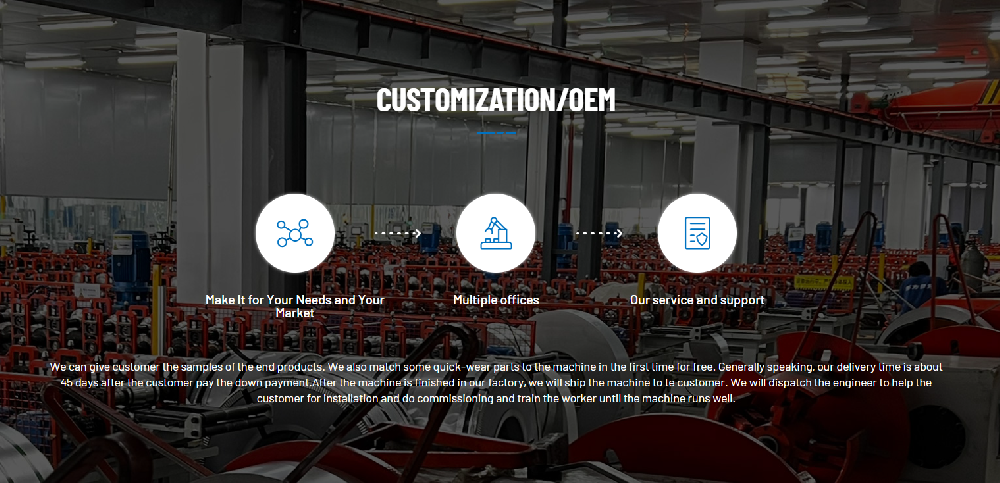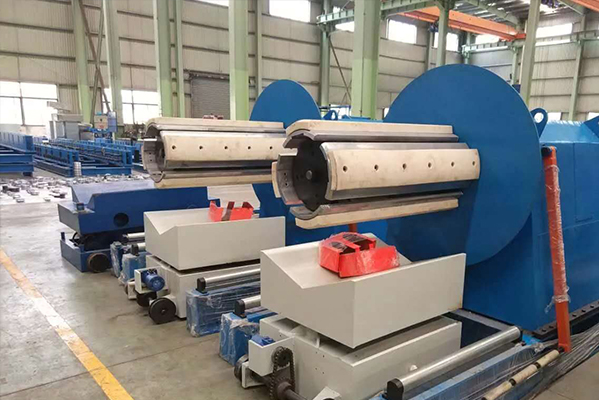Navigation Menu
Contact Us
- Email:
- info@wxavatar.com
- Address:
- Yurong Village, Yuqi Street, Huishan District, Wuxi, China.
Release Date:Jun 16, 2025 Visit:82 Source:Roll Forming Machine Factory
In recent years, the demand for 10-ton hydraulic decoilers has steadily grown across various industrial sectors. These machines, essential for handling heavy coil materials, offer practical solutions in production lines where efficiency and stability are key. Understanding the factors behind this rising demand can help industry players better align their strategies and investments.

1. Increasing Need for High-Volume Production
One of the primary drivers for the growing use of 10-ton hydraulic decoilers is the need to support high-volume manufacturing. Industries such as automotive, construction, and metal processing often work with large coils that require reliable unwinding solutions. Hydraulic decoilers provide a steady and controlled feed, which is essential for maintaining continuous production flow, minimizing downtime, and improving output efficiency.
2. Versatility in Coil Handling
Hydraulic decoilers are known for their ability to handle a variety of coil sizes and materials. This flexibility is particularly important for manufacturers who need to switch between different coil specifications quickly. The 10-ton capacity meets the requirements of medium to heavy-duty applications, making these decoilers suitable for a broad range of production environments.
3. Enhanced Safety and Stability
Manual coil handling can pose safety risks, especially when dealing with heavy materials. Hydraulic decoilers help address these concerns by offering automated coil loading and unwinding. The hydraulic system ensures stable operation, reducing the risk of coil slippage or machine failure. This focus on operational stability is a key reason many factories prefer hydraulic models over manual or mechanical alternatives.
4. Demand from Sheet Metal Processing Lines
As industries increasingly rely on sheet metal processing, the need for precise material handling equipment has grown. 10-ton hydraulic decoilers are widely used in lines such as cutting, stamping, and roll forming. Their ability to deliver consistent tension and controlled speed supports accurate processing, which is vital for achieving high-quality end products.
5. Equipment Upgrades in Manufacturing Facilities
Many manufacturing plants are updating their equipment to improve overall efficiency. Replacing older decoilers with hydraulic models is part of this modernization trend. Hydraulic decoilers offer more advanced features, such as adjustable pressure control and motorized expansion, which can enhance production flexibility and reduce manual intervention.
6. Growing Popularity of Automated Production Lines
Automation continues to be a key development in modern manufacturing. Hydraulic decoilers fit well into automated systems because they can be easily integrated with other machines, such as straighteners and feeders. Their compatibility with automated processes helps streamline operations and supports the industry's move toward more intelligent production lines.

Conclusion
The rising demand for 10-ton hydraulic decoilers is driven by multiple industry needs, including high-volume production, improved safety, equipment flexibility, and the ongoing shift toward automation. As manufacturers continue to look for ways to optimize their processes and maintain steady material flow, hydraulic decoilers are expected to remain a popular choice across many sectors.